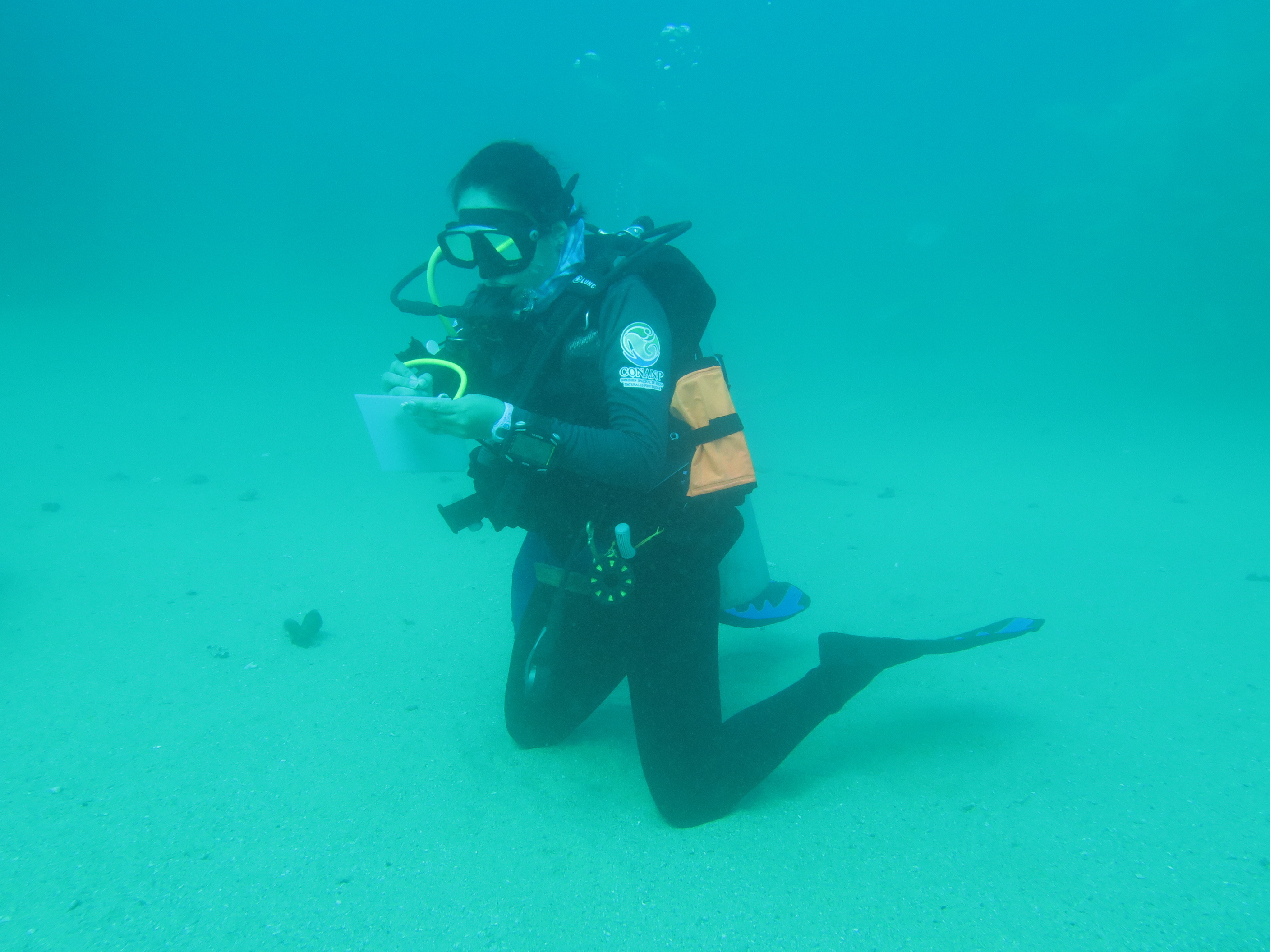

The rapid growth of tourism has caused negative impacts on reef ecosystems, caused mainly by inexperienced or careless divers. Damage has been observed since 2011. Later, in 2015 it was found that the sites of greater tourist use had more fragmented corals mainly of the genus Pocillopora. In 2016, CONANP and NIPARAJÁ participated in a workshop to exchange experiences on monitoring protocols of tourism use in Protected Natural Areas, where a standardized methodology was proposed to carry out impact monitoring and underwater monitoring. The impact assessment is carried out using the “Protocol for Monitoring Impacts and Surveillance of Snorkel and Autonomous Diving Activities for Marine Protected Areas” which has been used to know the impacts generated by recreational diving in sites with reef ecosystems, focusing on the number of contacts each diver makes on the substrate and the number of times corals are broken over time. Since 2017, the National Park personnel have been carrying out underwater monitoring and surveillance of diving groups. At each dive, a diver or tourist is selected and monitored for 10 minutes.
The presence of the management authorities of the National Park in the areas of public use allows the immediate detection of bad diving practices carried out both by tourists and their guides. This allows us to come into direct contact with them to explain the observed situation and thus be able to correct their performance.
Also, it is favorable that managers can monitor and supervise in real time the conditions of the reef and its elements.
It is important to mention that even though the managers of the protected area make every year a greater effort in underwater monitoring and the training courses on good diving practices have been maintained, the percentage of contacts by tourist divers on the environment has not reduced considerably. But a decrease in contact/impact on the reef structures has been detected.
It is extremely important to continue the underwater monitoring efforts in conjunction with the training of the guides to strengthen the management actions of the Cabo Pulmo National Park and the protection of the coral reef.